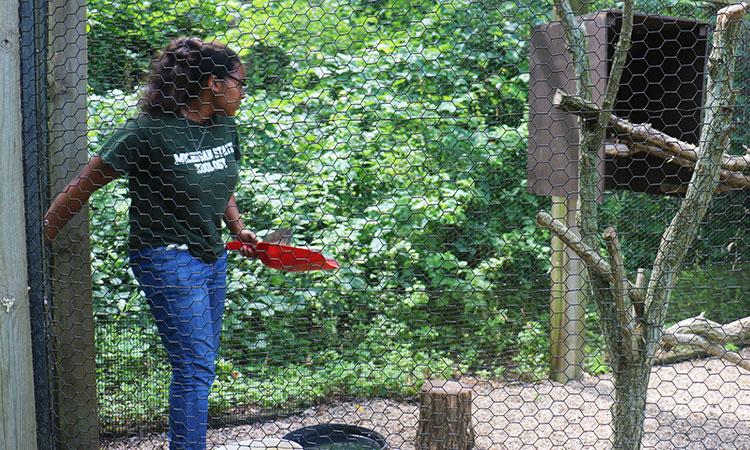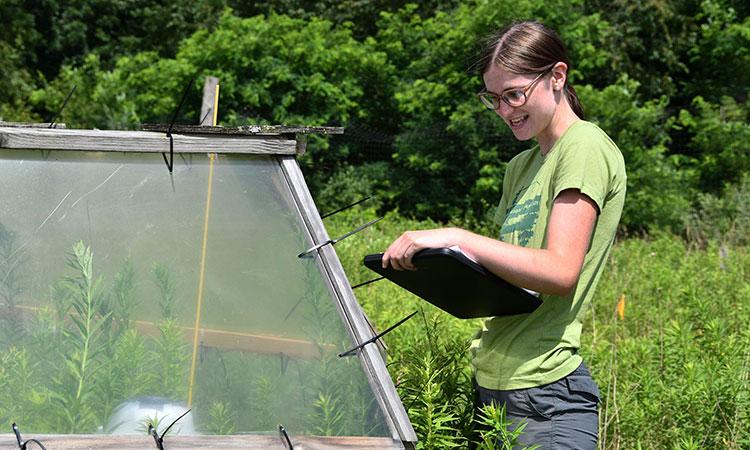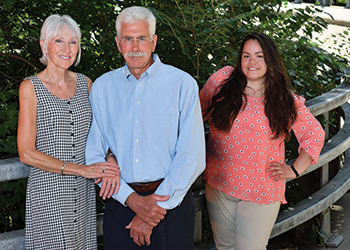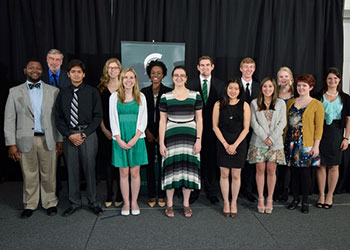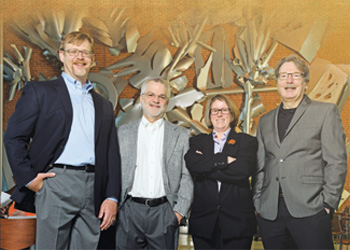Where Diversity and Biodiversity Go Hand-in-Hand
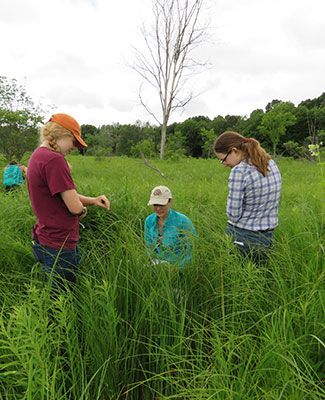
Where Diversity and Biodiversity Go Hand-in-Hand
March 25, 2022Kellogg Biological Station welcomes a new director and new ways to impact young researchers
Located an hour southwest of MSU’s East Lansing campus, the W.K. Kellogg Biological Station occupies 3,800 acres of land in a quiet rural area between Kalamazoo and Battle Creek. It is home to both aquatic and terrestrial habitats, forests, old fields, streams, wetlands, lakes, agricultural lands…and one of North America’s premier inland field research stations.
Here, alongside such diverse natural ecosystems, an ecosystem of research and education also thrives.
For the undergraduate students whose interests lead them—sometimes from far and wide—to work, do research or attend classes at this incredible place, KBS can be a critical, formative experience in their pursuit of a career in field research.
Part of it is the tight-knit community. The research site is a nucleus around which faculty, graduate students and undergraduates live, work and even dine alongside one another, which certainly fosters collaboration but also gives a taste of what life in the field is really like.
The other part is the supportive, welcoming environment that is ripe for learning.
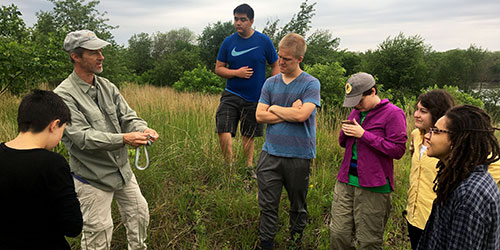
“What happens in this atmosphere is that you’ve got everybody pulling for you,” says Fredric Janzen, who officially joined Kellogg Biological Station as its director in June 2020. “Here, you gain the skill sets to understand two things: first, how to get through career challenges in a supportive work environment—where you get to the other side and say, ‘Yeah, I can do this.’ And second, you get exposure to diverse perspectives, not just from other students, but from mentors and staff who all have cutting-edge training.”
Right now, KBS offers just one option for paid, full-time undergraduate research: the National Science Foundation–funded Research Experiences for Undergraduates (REU) program.
Designated only for non-MSU students, REU is a 10-week, fully funded immersive experience that pairs students with a mentor who helps them design and implement an independent research project that culminates in a poster presentation at the end of the summer.
Aside from taking classes at KBS as part of their regular course load, MSU students have two options for immersive study there. The first is the Undergraduate Research Apprentice (URA) program, geared toward students with little to no previous research experience, who conduct research part time while also attending at least three credits of classroom training.
The second is the KBS Internship program, which also requires students to take a course and participate in professional development seminars while they complete the responsibilities of an internship in their chosen discipline, which could be anything from external communications to visitor experience to avian care at the Bird Sanctuary.
Giving as many students as possible the opportunity to pursue their research interests and experience the research lifestyle at KBS is one of Janzen’s immediate goals as he settles into his role, fills key faculty positions and gets to know the donors who have a passion for helping students become scientists.
Among them are Doug and Maria Bayer, longtime supporters of MSU who made a recent gift to KBS.
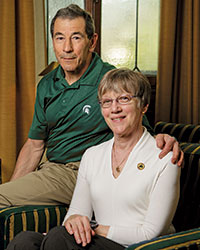
fund to support student interns at KBS.
“Our motivation comes from Doug’s personal undergraduate research experience guided by dedicated research professionals and Maria’s rural early life experience,” the Bayers say. Their gift will provide funding for two fully paid undergraduate internship positions—for students from MSU or from other universities—beginning this summer, and additional paid internships as opportunities arise for KBS to accommodate them.
Donor support, Janzen emphasizes, is truly the margin of excellence for Kellogg Biological Station’s undergraduate research programs, with scholarships being the key component in the experiences KBS is able to offer—especially to MSU students, and perhaps even to those whose path to research wasn’t traditional.
“We want to be able to cast our net as wide as possible,” Janzen says. “Many students don’t have that lightbulb moment—when they take a botany class or a forestry class that makes them realize, ‘Hey! I want to do this as my career!’—until it’s too late to find and apply for a competitive research position. We want to be able to reach those students, too.”
Janzen was one of those students, and he knows how much piquing their interest early on, offering them a scholarship and an immersive experience—or even giving them the opportunity to complete a research program after they’ve already completed their undergraduate degrees—could make a difference for those still on the cusp of finding their paths. It would also further diversify the already wonderfully diverse group of young researchers whose life experiences and perspectives help shape the welcoming atmosphere of KBS.
Around KBS, one of the words you hear often is biodiversity—all the different kinds of life that form the complex web that maintains balance and supports life in an ecosystem. It is important, because without it, there is no life.
Diversity of people, perspectives and the research being done at KBS are just as important.
LEARN MORE about support for Kellogg Biological Station by contacting Associate Director of Development Karen Wenk at wenk@msu.edu or by calling (517) 353-5962.


